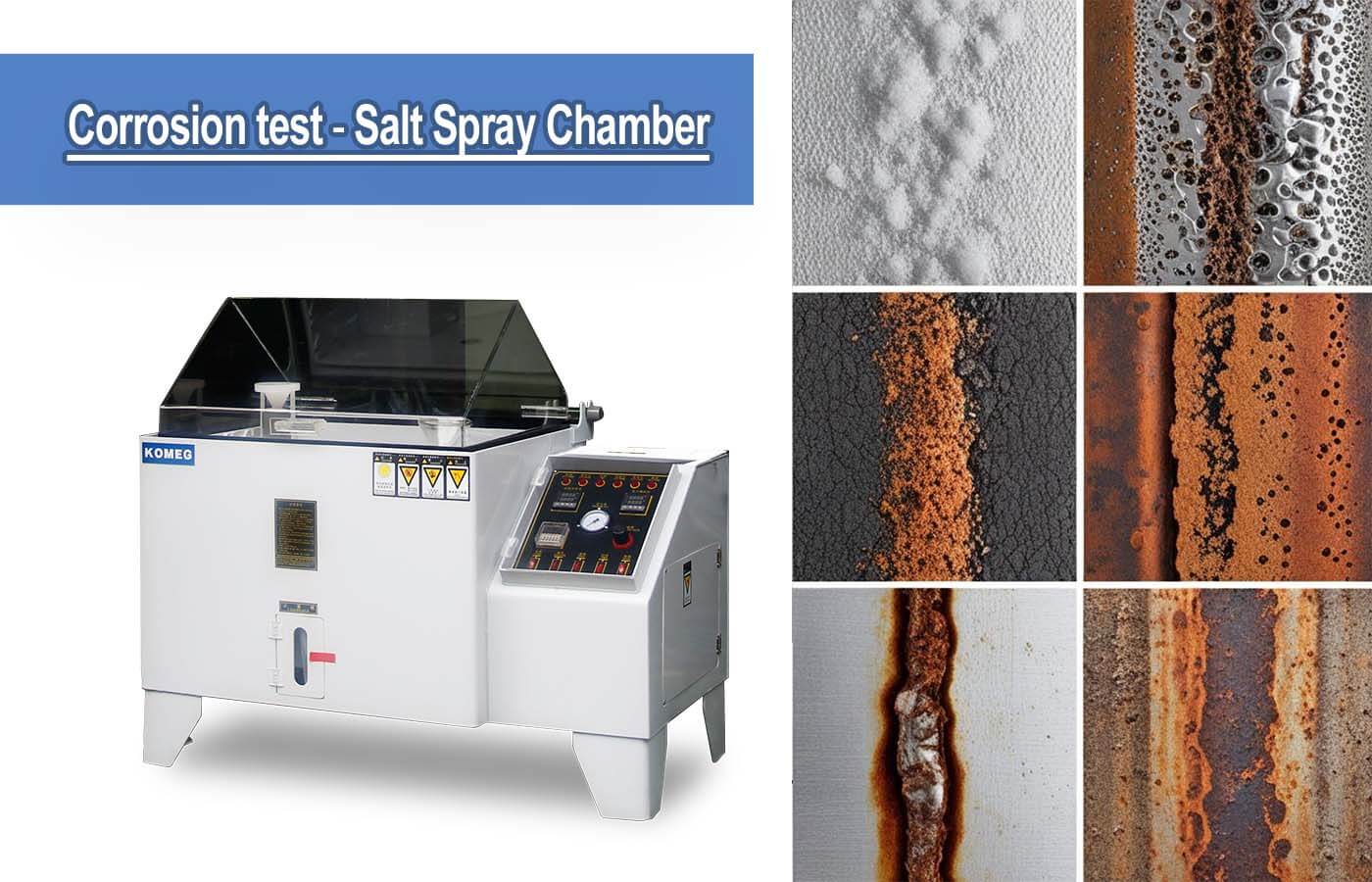What is a salt spray test?
Salt spray corrosion is a common type of atmospheric corrosion. A salt spray tester can create an environment that simulates this corrosion. It works by turning a salty water solution into a spray and applying it to a sample for an extended period. This process allows the sample to corrode, helping to test the product’s resistance to corrosion.
What tests can the salt spray tester do?
Salt spray corrosion test chambers are divided into two types: neutral salt spray and acid salt spray:
1.Neutral Salt Spray Test (NSS, ACSS)
NSS is the most commonly used salt spray test method. A 24-hour test is equal to the corrosion effect of 1 year in a natural environment.
The corrosion rate of ACSS is 3 times that of the NSS test. A 24-hour test is equal to the corrosion effect of 3 years.
Test temperature requirements:
Test room: 35°C ± 1°C
Pressure air barrel: 47°C ± 1°C
2.Acid Corrosion Test (CASS)
The corrosion rate of CASS is 8 times that of NSS. This accelerated corrosion test method can check the product’s corrosion resistance more quickly.
Test temperature requirements:
Test room: 50°C ± 1°C
Pressure air barrel: 63°C ± 1°C
The salt spray tester can only be used to simulate a single salt spray environment. If you want to simulate a more complex corrosion environment, you need to use a compound salt spray chamber. The compound salt spray chamber has added temperature and humidity adjustment functions, which can test the performance changes of products under the combined influence of high temperature, humidity, dryness, salt spray and other conditions.
Application of Salt Spray Tester
In product production and design, the ability of materials to resist corrosion is very important. That’s why salt spray machines are widely used in many industries to test how well both metal and non-metal materials can resist corrosion.
Automotive Industry: Test the corrosion resistance of different parts and materials in cars to make sure they work well in various environments and weather conditions.
Aerospace: Check the corrosion resistance of materials and parts, like those used in airplanes, in salty environments.
Marine Engineering: Evaluate how well ships and marine equipment resist corrosion.
Electronic Industry: Test how reliable materials and parts in electronic devices are in humid and salty conditions.
Building Materials: Test the lifespan of various building materials in coastal or corrosive environments.
The salt spray tester can speed up the corrosion rate of products and save time and money on testing by adjusting the salt concentration, test temperature, and humidity. It is an essential piece of testing equipment in the research and design stages of many industries. Feel free to contact us for the price of salt spray test chambers.

